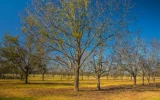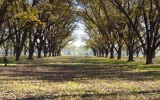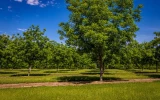How Much is a Pecan Tree Worth? (Mature vs. 100-Year-Old)
Have you ever wondered about the value of a pecan tree? It's not just about its age but also its production capacity. When you know the difference between the value of a mature pecan tree and a 100-year-old pecan tree, you'll be able to manage a pecan orchard or decide whether to remove a tree from your landscape. You'll also be equipped to maintain, replace, or preserve these valuable trees for years to come.
A mature pecan tree is typically valued between $2,500 and $2,850. On the other hand, a 100-year-old pecan tree's value may be difficult to determine, as its productive life might have passed or decreased significantly. Yet, these ancient trees can still hold great value as a natural resource.
Pecan trees that are more than 100 years old can still be very valuable as a natural resource because they provide essential ecosystem services like carbon sequestration, soil improvement, and wildlife habitat. Let's learn more about these services below.
Summary
- A mature pecan tree that has reached full production is typically valued between $2,500 and $2,850. The tree's value includes the direct costs of buying, growing, and maintaining the tree until its production equals the cost of producing the nuts.
- Larger, healthier trees frequently fetch higher prices. A 100-year-old, healthy pecan tree may produce an abundance of nuts and be more valuable than a smaller, younger tree.
- To determine the worth of your 100-year-old pecan tree, carefully assess factors such as the size and health of the tree, nut yield, and estimated replacement cost.
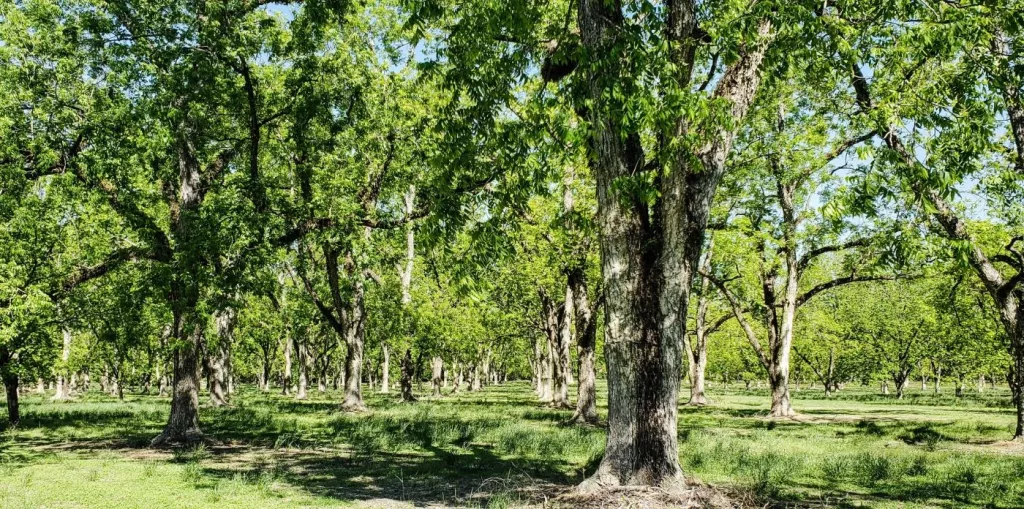
On this page:
Worth of Mature Pecan Trees
Factors influencing the value of a mature pecan tree
These factors include the age of the tree, its health, the variety of pecans produced, and the tree's location. A healthy tree with a high yield of desirable pecans will be worth more than a tree that is struggling with disease or producing low-quality nuts. Additionally, a tree in an ideal location, such as in a well-managed orchard, will be more valuable than a tree situated in a less optimal environment.
It is also essential to consider the costs associated with maintaining, irrigating, and harvesting the pecan tree when determining its worth. One source suggests that annual costs per acre (at 27 trees per acre) can range from $227.36 to $470.00, depending on the stage of the tree's growth.
These costs must also be weighed against potential revenue from selling the pecans, as well as any tax incentives or government subsidies available for tree maintenance.
Average prices of a mature pecan tree
The price of a pecan tree can vary based on the factors mentioned above, but one case study estimates that replacing a mature pecan tree that has reached full production can cost between $2,500 and $2,850.
However, the worth of a pecan tree will also depend on market prices for pecans, which can vary each year. For example, the USDA Crop Reporting Board found that the average price received by growers during the years 1985–1994 was 63.5 cents per pound for improved-variety pecans.
As for a 100-year-old pecan tree, its worth is more difficult to estimate, but it will likely depend on its health, yield, and location, as well as the historical and sentimental value associated with such an old tree.
Worth of 100-Year-Old Pecan Trees
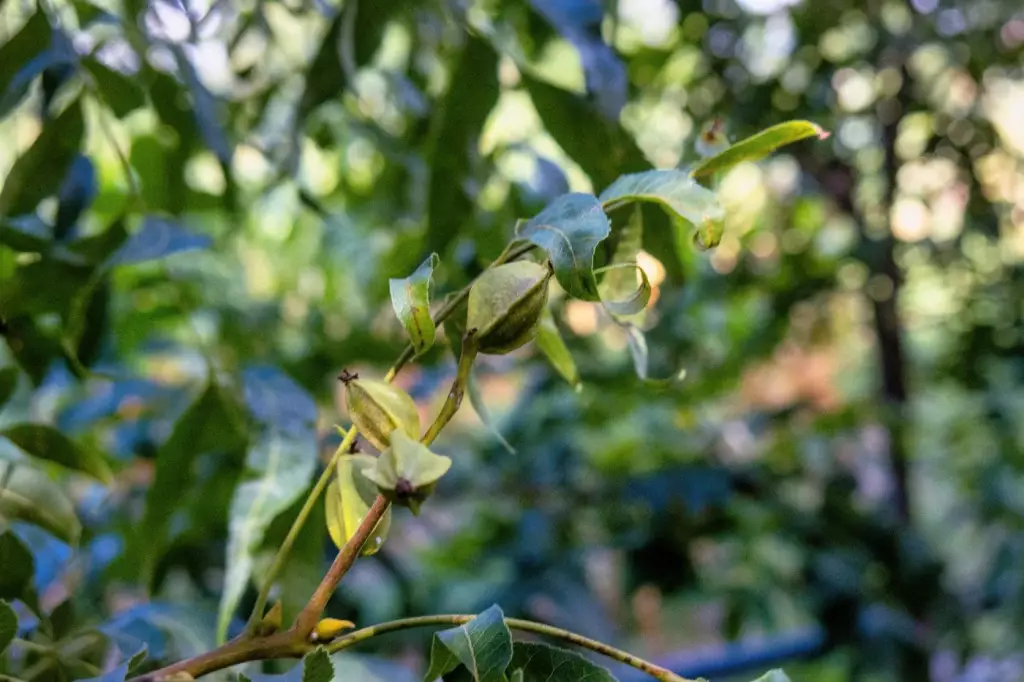
Historical significance of a 100-year-old pecan tree
These trees have withstood the test of time and witnessed significant events throughout their lifetime. As a result, they have likely served as a crucial part of the local ecosystem, providing shade, shelter, and food for a variety of species.
Moreover, such trees may have served as landmarks or other essential points of reference for communities. In terms of value, the historical significance of these majestic trees can make them a precious part of your property.
A 100-year-old pecan tree is a valuable and essential part of the ecosystem, providing a wide range of benefits to both humans and wildlife. Here are a few examples:
-
Carbon sequestration: Pecan trees absorb carbon dioxide from the atmosphere through photosynthesis and store it in their trunks, branches, and leaves. A mature pecan tree can sequester up to 48 pounds of carbon dioxide per year, making it an important tool in mitigating climate change.
-
Soil improvement: Pecan trees have deep roots that can penetrate up to 30 feet into the soil, which helps to improve soil structure and nutrient cycling. The leaves and twigs that fall from the tree also contribute to soil health by adding organic matter and nutrients.
-
Wildlife habitat: Pecan trees provide habitat for a wide variety of wildlife, including birds, mammals, and insects. The tree's branches and leaves provide shelter and nesting sites for birds, while the nuts provide a valuable food source for squirrels, deer, and other animals.
-
Water conservation: Pecan trees have a deep root system that can access water deep in the soil, which helps to conserve water during times of drought. The tree's leaves also provide shade, which helps to reduce evaporation and conserve water in the soil.
Factors affecting value of older pecan trees
-
Size and health: Larger, healthier trees often command higher values. A healthy 100-year-old pecan tree may provide abundant nut production and be worth more than a smaller, younger tree.
-
Nut yield: The value of a pecan tree is also contingent upon the quality and quantity of nuts it produces. Trees producing higher yields of superior-quality pecans are generally worth more than those with lower outputs or lesser-quality nuts.
-
Location: The context in which your tree is situated affects its worth. Trees that hold sentimental value or contribute to the aesthetics of the landscape may increase the overall worth of your property.
-
Estimated replacement cost: According to a Farm Progress article, replacing a mature pecan tree can cost between $2,500 and $2,850. This figure can be an essential part of determining your tree's value, especially when considering insurance or repair costs resulting from damage or loss.
Comparing Mature and 100-Year-Old Pecan Trees
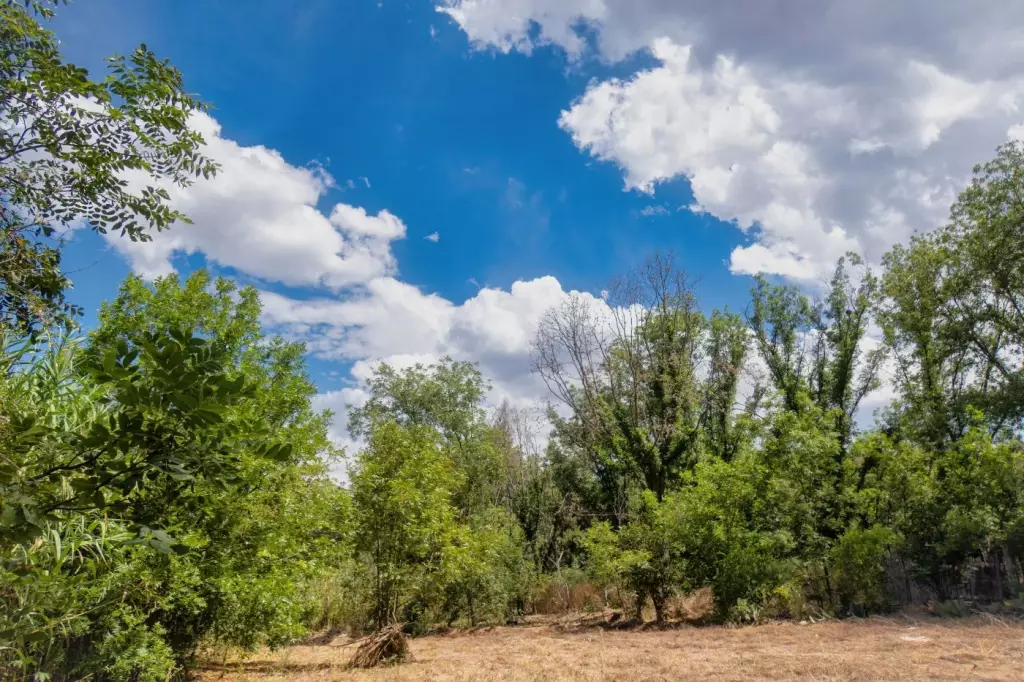
In this section, we will take a closer look at the differences between mature and 100-year-old pecan trees in terms of location and climate, maintenance and care, and production capacity.
Location and climate for your pecan trees
For both mature and 100-year-old pecan trees, you should plant them in well-draining soil with a pH of 6.0 to 6.5 and provide adequate sunlight to ensure their growth and productivity.
However, the older and larger a pecan tree gets, the more space it will require. While mature trees may need at least 35 to 50 feet between each other, a 100-year-old tree may require even more; make sure you account for this when choosing a location for your tree.
Maintenance and care of your pecan trees
Taking care of a pecan tree involves proper fertilization, pruning, and pest management. For both mature and 100-year-old trees, you will need to:
- Apply 13-13-13 fertilizer at a rate of 1 pound per tree per year of age, up to 25 pounds per tree
- Apply 34-0-0 fertilizer at a rate of 1 pound per tree per year of age, up to 20 pounds per tree
- Apply zinc sulfate at a rate of 1/10 pound per tree per year
However, older trees may require more attention to pruning due to their larger size and potential for disease or damage from pests.
Production capacity contributes to your tree's worth
A mature pecan tree can be quite valuable, with an estimated worth of $2,500 to $2,850. In contrast, it's harder to put an exact value on a 100-year-old tree, as it depends on factors such as its health, productivity, and market conditions.
Generally, you can expect nuts from a mature tree in eight to ten years from planting, with crop yield alternating between heavy and light years. A 100-year-old pecan tree, assuming it has been well-maintained, will likely have a more consistent and higher production capacity.
